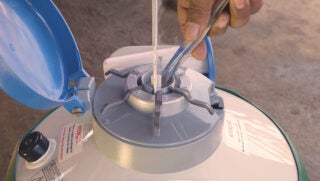Earlier this week, President Trump advanced his trade agenda by joining South Korean President Moon Jae-in in signing a revised version of the United States-Korea Free Trade Agreement, known in political shorthand as KORUS.
This isn’t a new deal, since KORUS has been around for half a decade already, but it does remove some regulatory burdens for U.S. industries such as automotive and helps to keep agricultural exports flowing. The deal also opens the door to trade negotiations 2.0, which is now looking at solidifying a deal with Japan.
Here’s what three U.S. ag leaders had to say about the KORUS deal:
Agriculture Secretary Sonny Perdue: “Achieving high-standard trade agreements is a top priority for American agriculture, and the announcement of the beginning of negotiations for a U.S.-Japan trade agreement is an important step in that process. This is welcome news, since we know that export income is critical to the financial health of agriculture and is a key contributor to rural prosperity. Japan is an important customer for our agricultural products and we look forward to the great potential this breakthrough represents. Today’s announcement is further proof that President Trump’s approach to trade — standing strong for American interests and bringing other countries to the table — will benefit our entire economy, including the agricultural sector.”
American Farm Bureau Federation President Zippy Duvall: “President Trump’s approval of the modernized U.S.-Korea Free Trade Agreement preserves a two-way trade relationship that greatly benefits America’s farmers and ranchers. South Korea bought $6.9 billion worth of U.S. agricultural goods last year, making it our sixth-largest export market. Whether it’s corn, soybeans and wheat, or poultry, eggs and meat products, our agricultural exports to South Korea are growing thanks to the U.S.-Korea FTA.”
National Corn Growers Association: “President Trump on Monday signed the new United States-Republic of Korea Free Trade Agreement (KORUS). The National Corn Growers Association has advocated for continuing our trading relationship with Korea and appreciates President Trump and President Moon reaffirming the two countries’ important partnership. Korea is the third largest export market for U.S. corn farmers, and KORUS has been instrumental in solidifying this important market. Farmers voiced their support for KORUS loud and clear, and NCGA is pleased the agreement has been updated. The new KORUS also paves the way for U.S. trade negotiators to work on opening new export markets for agriculture.”
United States Cattlemen’s Association President Kenny Graner: “U.S. cattle producers sent $7.27 billion of beef to South Korea in 2017, making the United States the largest supplier of beef for the country. The revised KORUS trade agreement, with a reduced and eventually eliminated tariff schedule for beef, represents the Administration’s dedication to securing fair trade agreements that put domestic producers first. …
“Expanding market opportunities for U.S. beef exports to large consuming countries like Japan and Korea is an important objective for U.S. producers. With the U.S. withdrawal from the Trans-Pacific Partnership (TPP) last year, there has been concern that U.S. beef would lose market share to one of our most important export markets – Japan. The joint statement indicating an intent of the U.S. and Japan to enter into negotiations holds the hope that U.S. producers will quickly be back on par with other major beef exporting countries who remained in the TPP. We are greatly encouraged by these recent actions and look forward to addressing our trade agreements with other countries with the same vigor.”


